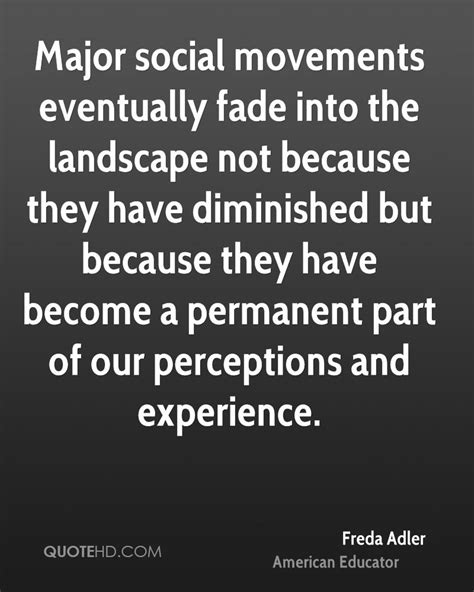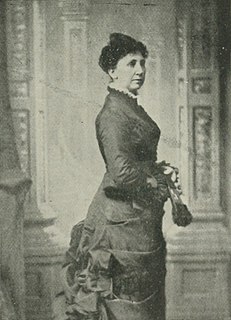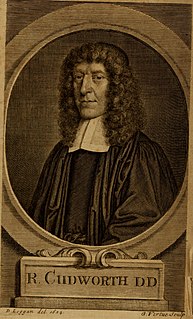A Quote by Freda Adler
That man is a creature who needs order yet yearns for change is the creative contradiction at the heart of the laws which structure his conformity and define his deviancy.
Related Quotes
In order to live, man must act; in order to act, he must make choices; in order to make choices, he must define a code of values; in order to define a code of values, he must know what he is and where he is – i.e. he must know his own nature (including his means of knowledge) and the nature of the universe in which he acts – i.e. he needs metaphysics, epistemology, ethics, which means: philosophy. He cannot escape from this need; his only alternative is whether the philosophy guiding him is to be chosen by his mind or by chance.
Always man needs woman for his friend. He needs her clearer vision, her subtler insight, her softer thought, her winged soul, her pure and tender heart. Always woman needs man to be her friend. She needs the vigor of his purpose, the ardor of his will, his calmer judgment, his braver force of action, his reverence and his devotion.
A man's at odds to know his mind cause his mind is aught he has to know it with. He can know his heart, but he dont want to. Rightly so. Best not to look in there. It aint the heart of a creature that is bound in the way that God has set for it. You can find meanness in the least of creatures, but when God made man the devil was at his elbow. A creature that can do anything. Make a machine. And a machine to make the machine. And evil that can run itself a thousand years, no need to tend it.
Now the Father draws us from the evil of sin to the goodness of His grace with the might of His measureless power, and He needs all the resources of His strength in order to convert sinners, more than when He was about to make heaven and earth, which He made with His own power without help from any creature. But when He is about to convert a sinner, He always needs the sinner's help. "He converts thee not without thy help," as St. Augustine says.
How shall we define occultism? The word is derived from the Latin occultus, hidden; so that it is the study of the hidden laws of nature. Since all the great laws of nature are in fact working in the invisible world far more than in the visible, occultism involves the acceptance of a much wider view of nature than that which is ordinarily taken. The occultist, then, is a man who studies all the laws of nature that he can reach or of which he can hear, and as a result of his study he identifies himself with these laws and devotes his life to the service of evolution.
Nature is the system of laws established by the Creator for the existence of things and for the succession of creatures. Nature is not a thing, because this thing would be everything. Nature is not a creature, because this creature would be God. But one can consider it as an immense vital power, which encompasses all, which animates all, and which, subordinated to the power of the first Being, has begun to act only by his order, and still acts only by his concourse or consent ... Time, space and matter are its means, the universe its object, motion and life its goal.
Man with all his noble qualities, with sympathy which feels for the most debased, with benevolence which extends not only to other men but to the humblest living creature, with his god-like intellect which has penetrated into the movements and constitution of the solar system- with all these exalted powers- Man still bears in his bodily frame the indelible stamp of his lowly origin.
Christianity affirms that at the heart of reality is a Heart, a loving Father who works through history for the salvation of His children. Man cannot save himself, for man is not the measure of all things and humanity is not God. Bound by the chains of his own sin and finiteness, man needs a Savior.
The best assurance any one can have of his interest in God, is doubtless the conformity of his soul to Him. When our heart is once turned into a conformity with the mind of God. when we feel our will conformed to His will, we shall then presently perceive a spirit of adoption within ourselves, teaching us to say, "Abba, Father.
I believe that the unity of man as opposed to other living things derives from the fact that man is the conscious life of himself. Man is conscious of himself, of his future, which is
death, of his smallness, of his impotence; he is aware of others as others; man is in nature, subject to its laws even if he transcends it with his thought.
Strange is the vigour in a brave man's soul. The strength of his spirit and his irresistible power, the greatness of his heart and the height of his condition, his mighty confidence and contempt of danger, his true security and repose in himself, his liberty to dare and do what he pleaseth, his alacrity in the midst of fears, his invincible temper, are advantages which make him master of fortune.
Good fortune almost always makes some change in a man's behavior - in his manner of speaking and acting. It is a great weakness to want to bedeck oneself in qualities which are not his own. If he esteemed virtue above all other things, neither the favors of fortune nor the advantages of position would change a man's face or heart.



































